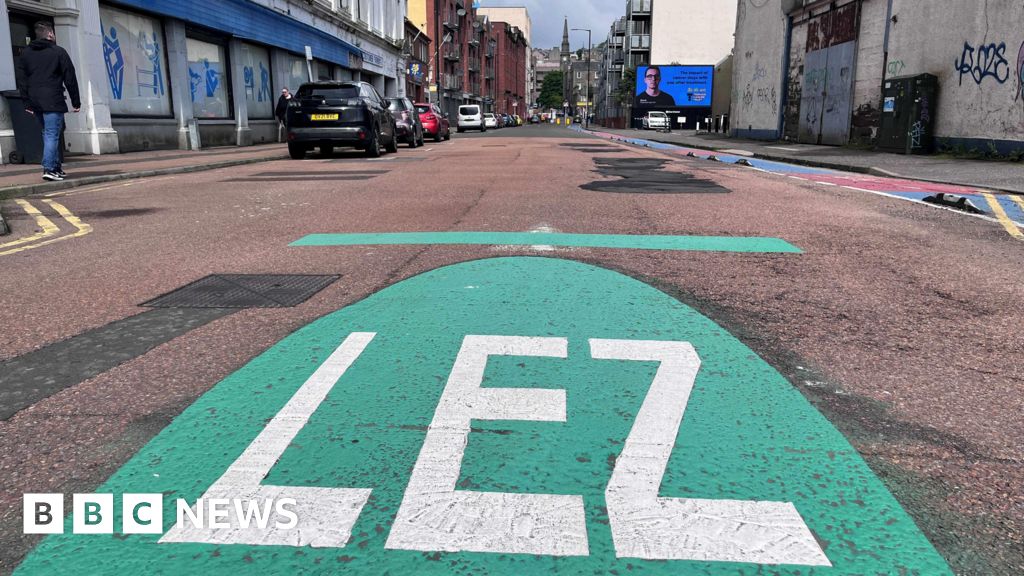World
Low Emission Zone: Dundee becomes second city to enforce LEZ – BBC News

Dundee has become the second Scottish city to introduce a low emission zone (LEZ), which bans some vehicles from its city centre.
Aberdeen and Edinburgh will begin enforcing their LEZs on Saturday.
Glasgow was the first Scottish city to introduce the zones a year ago.
It recently announced that it had received more than £1m in penalty charges issued to 33,000 drivers of non-compliant vehicles who entered the restricted zone.
The big difference between the four LEZs in Scotland and London’s ULEZ (Ultra Low Emissions Zone) is that the most polluting vehicles are banned north of the border while in the English capital they can still enter if they pay a fee.
The Scottish ban broadly affects diesel cars and vans registered before September 2015 and older petrol vehicles registered before 2006.
Glasgow was the first Scottish city to enforced an LEZ when it began on 1 June 2023.
Experts say it is too early to see the improvements in air quality being reflected in data because of how much of a role the weather – particularly the wind – plays in pollution levels.
But modelling from other zones – such as the world’s largest LEZ in Tokyo – show significant health benefits including a drop in infant mortality.
A study by the Atmospheric Pollution Research journal, in August 2022, found that nitrogen dioxide levels in London’s ULEZ fell by 12% in its first year.
Rebecca Wade, who cycles to work in Dundee from her home in Broughty Ferry, feels the new LEZ will make a big difference.
Her journey takes about half an hour and is largely along an off-road cycle path hugging the banks of the Tay.
Once she reaches the city centre it is a battle through the traffic to reach work at Abertay University, she says.
Dr Wade says: “It’s really wonderful that some of the buses are now hybrid and electric, so there’s much less pollution from those.
“Many of the cars are electric too, but you just can’t avoid that exhaust pollution when you’re sitting at junctions.”
Air pollution levels in Scotland have been falling in recent years as newer cars generate lower pollution levels.
It suggested that children may be more vulnerable to pollution at lower levels than adults because their bodies are still growing.
Prof Jill Belch, from the University of Dundee, who led the research, said it would take a couple of years for the LEZs to show a change in the health of people living or working within them.
But she said the number of acute asthma attacks should fall very quickly.
She said: “The first thing we’ll see is that the pollution levels will come down and that’s great.
“But it’s not just hospital admissions, it’s the long-term effects with dementia and heart attacks.”
Council drivers fined
Glasgow’s low emission zone has now been in place for a year and the city council – which administers the zone – said only about two-thirds of its own vehicles were compliant.
It has issued 62 fines to its workers for entering the zone in council vehicles and said it was the responsibility of the driver not to break the rules.
In the run-up to its inception, Glasgow’s Chamber of Commerce raised concerns that the restrictions would drive customers out of an already struggling city centre.
The chamber said trade in the first year has been down but it admitted there were factors beyond the LEZ which were contributing to lower footfall.
The arguments are being repeated in Dundee, Aberdeen and Edinburgh.
Mobolaji Adeniyi, of Gidi Grill, owns restaurants within the low emission zones in both Aberdeen and Dundee.
While he is not opposed to the principle of the zones, pressures on the hospitality sector from Covid, inflation and the cost of living mean he feels now is not the best time to introduce them.
He said: “I’m anxious, like any other business owner. We’re going through unprecedented times.
“I think it’s a great policy. I think it’s just absolutely the wrong timing for businesses.”






